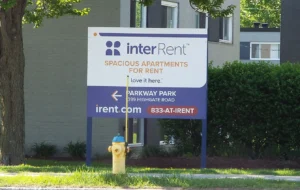Basics You Need to Know

What Does a Leasing Agent Do?
Managing a rental property comes with more work than most people expect—advertising vacancies, answering calls, showing units, and sorting out lease paperwork. Instead of juggling it all, many landlords turn to leasing agents for help.
But what does a leasing agent do, how much do they charge, and is hiring one worth it in 2025? Let’s find out.
What Does a Leasing Agent Do?
A leasing agent is the person who helps landlords rent out their properties, such as houses, apartments, or even commercial spaces like offices or retail stores. Their main job? Ensuring empty spaces are filled quickly. Luckily, an experienced property management company can handle all these leasing tasks for you—and even take care of managing your property.
They post ads, answer calls from potential renters, show them around the property, and assist with all the necessary paperwork to finalize the lease. Then, once they find a qualified tenant and hand over the keys, their work is basically done.
Duties of a Leasing Agent
We’ve talked about what leasing agents are, but what does their job really look like on the ground? Here’s a peek at the key tasks they take on to keep your rental running smoothly.
1. Marketing and Advertising the Property
Leasing agents know how to get your rental in front of the right audience. They use a bevy of methods in their arsenal. For instance, they use online listings, social media, and even traditional signage to grab attention fast—and keep inquiries coming in.
2. Handling Tenant Inquiries
Leasing agents are the first point of contact for renters showing interest. When potential tenant wants to confirm the rent price or an email asking to schedule a tour, they contact them. They handle questions with ease and keep the process moving.
3. Conducting Property Tours
Leasing agents don’t just open doors—they walk potential tenants through the property, highlight its best features, and answer questions on the spot to help them envision it as their next home. They’re there to guide tenants through each corner and crevice and show them in their best light.
4. Screening Potential Tenants
Leasing agents check applications thoroughly. This includes calling references, verifying income, and running background or credit checks. All of this is to make sure your tenant is qualified and financially stable.
5. Drafting and Explaining Lease Agreements
Once a tenant gets the green light, the leasing agent prepares the lease. Furthermore, they take time to explain the important details—like payment terms, responsibilities, and move-in dates. This way, there are no surprises when it’s time to sign.
6. Overseeing Move-ins
Leasing agents coordinate move-in day details. To give you an idea, they hand over the keys, check the property’s condition, and answer last-minute questions. Their main goal is to ensure tenants have a smooth start.
Need a Lease Agreement?
Access 150+ state-specific legal landlord forms, including a lease.
How Much Does a Leasing Agent Cost?
In 2025, the cost of hiring a leasing agent usually comes down to one thing: the rent amount. Most agents charge the equivalent of one month’s rent as their fee for finding a tenant. So, if your rental unit goes for $1,800 a month, you can expect to pay $1,800 once they’ve secured a signed lease.
In some markets, especially high-demand areas or commercial properties, the fee might be a percentage of the first year’s rent. This typically ranges from 5% to 8%, depending on the property type, location, and number of units.
Do Leasing Agents Need a License?
In many states, leasing agents do not need a real estate license if they’re only work in the business of renting properties, not buying or selling them. However, there are some states that do require leasing agents have a license, like Virginia.
In Virginia, leasing agents who work on a commission or compensation based on placing tenants must hold a valid real estate salesperson’s license. That means they need to:
-
Complete 60 hours of approved pre-licensing education.
-
Pass the Virginia state and national real estate exam.
-
Undergo a background check and submit an application to the Virginia Department of Professional & Occupational Regulation (DPOR)
Skills Every Good Leasing Agent Needs
As an investor, you need to know what to look for in a leasing agent. It’s not just about showing a house or helping with paperwork. A great agent goes the extra mile, blending people skills with professional expertise. Here are the key skills that set them apart:
- Communication skills – A great leasing agent knows how to break down complex information into simple terms, listen closely to what tenants are asking for, and keep landlords informed without you having to chase for updates.
- Marketing knowledge – They shouldn’t just slap your listing online. From crafting scroll-stopping ads to picking the right platforms, a skilled agent knows how to attract the right renters faster.
- Problem-solving skills – A great agent can handle last-minute cancellations or tough questions without letting things fall apart. They can work quickly on their feet. In our experience, the ability to do this is what sets a good and truly great agent apart.
- Time management – With so many responsibilities on their plate, staying organized and meeting deadlines is a must. If they can’t juggle a lot at once, they might not be up for the task. So, be sure they have that skill.
- Negotiation skills – They know how to balance the needs of tenants and landlords to get fair lease terms. Being able to be the middleman in these kinds of situations is paramount.
How to Become a Leasing Agent
If you’re thinking about starting a career as a leasing agent, you’ll need more than just a license. While we’ve already covered the legal requirements, thriving in this role calls for strong people skills, a keen eye for detail, and a passion for helping landlords and tenants.
After getting your license, the next step is to join a sponsoring broker. Here, you gain hands-on experience, and start building your reputation. From there, it’s all about growing your network, sharpening your marketing skills to attract tenants, and getting confident with tenant screening and lease negotiations.
Many successful leasing agents also take advantage of local real estate associations and online courses to stay on top of market trends and Fair Housing laws.
Challenges of Being a Leasing Agent
Leasing isn’t all property tours and signed contracts—it also comes with its fair share of challenges. High turnover in rental properties can keep agents on their toes, with constant marketing, back-to-back showings, and managing multiple applicants at once, all under tight timelines.
Then there are the people challenges. Late applications, no-shows, and last-minute cancellations test even the most patient agents. Staying calm and finding quick solutions is part of the job.
There’s also the pressure of staying compliant with laws like the Fair Housing Act and landlord-tenant laws. A single oversight in advertising or tenant screening can lead to legal issues for both the agent and their client.
Finally, because many agents work on a commission basis, their income can fluctuate depending on the market. During slow seasons, it takes extra effort to bring in new leads and keep business steady.
Source: Bay Property Management Group













 Accessibility
Accessibility